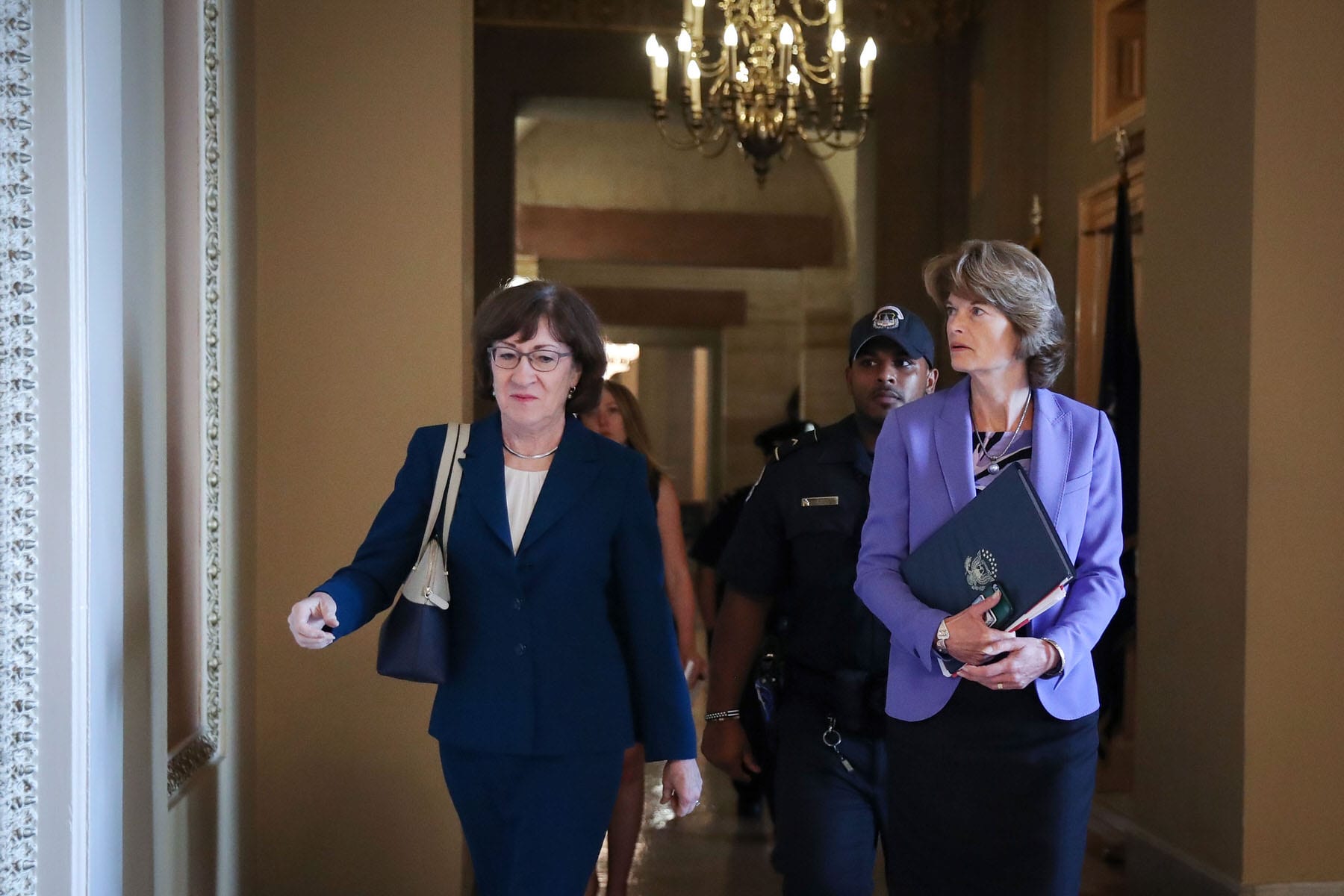The 19th will be watching the impeachment trial. Sign up for our daily newsletter to receive updates on the latest from Capitol Hill.
The U.S. Senate kicks off Donald Trump’s second impeachment trial on Tuesday with an eventual acquittal all but certain. But a handful of Republican senators will be closely watched as indicators of the extent to which their party may be ready to break with the former president.
Among them are Sens. Lisa Murkowski of Alaska and Susan Collins of Maine, two women known for their political independence who have already indicated they may be more open to convicting Trump than many of their Republican colleagues.
Murkowski was the first Republican senator to call for Trump’s resignation after January 6, when thousands of Trump supporters, with his encouragement, rioted at the Capitol to try to stop Congress from certifying the legitimate results of the presidential election. “I want him out,” she said.
Murkowski later said the Democratic-controlled House acted appropriately by impeaching Trump in a 232-to-197 vote last month.
Collins likewise said that she was “outraged” by Trump’s role in the riot. “The [former] president does bear responsibility for working up the crowd and inciting this mob. It was completely irresponsible,” she said.
Collins has declined to elaborate on whether she believes Trump should be convicted after the House’s impeachment, however, citing her role as a juror in the trial that will begin this week. The parameters of the trial are expected to be set Tuesday, with oral arguments from House impeachment managers and Trump’s legal team beginning Wednesday.
Both Collins and Murkowski were in a group of five Republicans who joined Democrats last month to declare the upcoming trial constitutional in a vote that Sen. John Thune, the No. 2 Republican, called “indicative” of which members of his party may be open to convicting the former president.
The others were Sens. Mitt Romney of Utah — the sole Republican to join Democrats in voting to convict in Trump’s first impeachment trial, when he was acquitted — Ben Sasse of Nebraska and Pat Toomey, who has said he will not seek reelection next year in Pennsylvania.
Republican Sen. Bill Cassidy of Louisiana told NBC’s “Meet the Press” over the weekend that last month’s vote on the trial’s constitutionality was not necessarily predictive of how individual lawmakers would eventually vote after hearing substantive arguments from both sides.
The 100-seat Senate is evenly divided between Democrats and Republicans, with Vice President Kamala Harris as the tiebreaker in votes that require a simple majority. An impeachment conviction, however, requires a two-thirds vote of at least 67 senators. If convicted, a second vote could be held that would prevent Trump from seeking reelection.
From a political standpoint, neither Collins nor Murkowski has much to lose by voting her conscience, said Jessica Taylor, an analyst with the nonpartisan Cook Political Report.
Collins defied expectations in November to win a fifth term after a years-long effort by Democrats to flip the seat. She beat Democratic challenger Sara Gideon by nine points — roughly the same margin by which Joe Biden defeated Trump in Maine — and was the only Republican senator to win reelection in a state that broke for Biden.
“Voters were very intentionally choosing to vote for both Joe Biden and her,” Taylor said.
Murkowski is up for reelection to her fourth term next year, but changes to Alaska’s primary system have “essentially removed any primary threat” and given the Alaska lawmaker “even more freedom,” Taylor said.
Murkowski has already shown she is not beholden to the Trump wing of the Republican Party. After she lost her 2010 Republican primary to Joe Miller, a Tea Party candidate backed by former Alaska Gov. Sarah Palin, she proceeded to run in the general as a write-in candidate — and she was victorious. In 2016, she handily won her primary but again faced Miller, then supported by Trump, in the general election. She won her third term with 44.4 percent of the vote to Miller’s 29.2 percent, while the independent and Democratic candidates received 13.2 percent and 11.6 percent, respectively.
“If the Republican Party has become nothing more than the party of Trump, I sincerely question whether this is the party for me,” Murkowski said after the riot.
She told Alaska Public Radio that she would not join the Democratic Party, however, indicating that if she did choose to cast her Republican affiliation aside it would be to govern as an independent.
The political calculus for Collins and Murkowski — and senators generally — differs from that of their Republican counterparts in the House, many of whom hail from gerrymandered districts that are hyper-partisan. Just 10 House Republicans joined Democrats to impeach Trump last month. Rep. Liz Cheney of Wyoming was the only member of party leadership to do so, and it led to a failed effort to strip her of the post.






